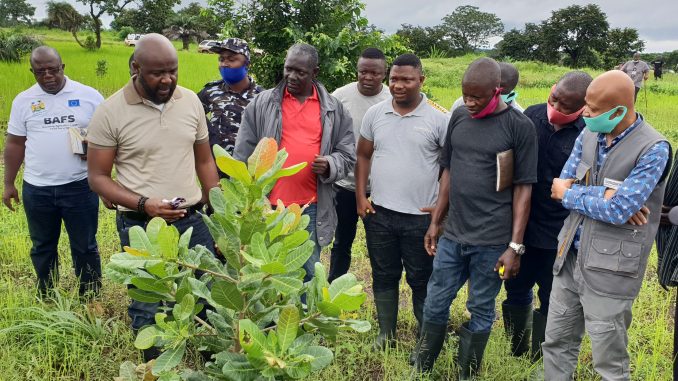
The monitoring and evaluation team that includes Sam-King Brima, Deputy Minister of Agriculture and Forestry (MAF), Andrew Tucker head of Rural Development and Governance at the National Authorising Office (NAO), Nicholas Jengre, Solidaridad West Africa Country Representative, Dr. Vibbi, Executive Director at the Sierra Leone Produce Marketing Board, Arnold Havel EU BAFS Agronomist Expert and other partners from MAF and GIZ trod on vast savanna land of 189 acres of cashew farms in Kamasondo and Kambia communities in Gbanti Chiefdom, Karene district to monitor, evaluate and ascertain progress of work of one of EU grantees, Solidaridad West Africa with funding from the European Union Development Fund under the Boosting Agriculture and Food Security (BAFS) project.
The cashews were planted by Solidaridad through their farmer cooperatives and with support from one of their service providers, Develop Salon (DEVSAL) in Karene district.
The objective of the project is to develop a vibrant, competitive and profitable cashew economy in the country. The EU and the government of Sierra Leone realized that cashew is one of those commercially very important tree crops that can also contributes to improve the lives of farmers and the national economy of the country.
Cashew being an emerging cash crop that has a great potential of improving livelihood and creating jobs in the country, the European Union through the NAO and MAF funded Solidaridad to encourage farmers through trainings, supply of cashews and inter-cropping seedlings to embark on cashew farming.
According to a baseline survey conducted by Solidadridad in 2017, it was identified that the absence of improved planting materials, unproductive trees, unorganized farmers, cyclical indebtedness of farmers to buying agents, lack of innovative support mechanisms for farmers, poor post-harvest handling were major challenges that undermined the progress of cashew farming in the country.
In 2019 the EU, the Government of Sierra Leone represented by the National Authorising Office, and Solidaridad West Africa signed the Develop a Vibrant, Competitive and Profitable Sierra Leone Cocoa, Coffee and Cashew Economy driven by Private Supply Chain Actors within a National Regulatory Framework project, through a grant agreement to develop the cash crops sector in Sierra Leone.
The European Union support to the sector was intended to address four main results that includes; to develop institutional capacity of the Ministry of Agriculture and Forestry for formulating food security strategies and increase sector policies, to have an efficient and effective value chains of cash crops for export, with special focus on increasing quality and quantity of production, processing, marketing and trading while implementing environmentally sustainable agricultural practices, diversification of agricultural production and internal trade promotion together with Local Authorities and private sector to build an economically viable agri-business that improves the value chain from input to marketing.
Speaking to the team of monitors, cashew farmers and community people, the country Representative for Solidadridad, Nicholas Jengre said the lack of relevant technical know-how of cashew farmers are a strong reason why they were not benefiting from cashew farming before now. He highlighted their achievements since 2019 in the cashew, cocoa and coffee sector in the country.
With Solidaridad statistics, they have planted 574,960 hybrid cocoa seedlings and 152,708 hybrid cashew seedlings. He said have also trained 2,700 farmers to adopt intet-cropping into their farming activities, trained 140 farmer field school facilitators, planted 2,425 hecter of cocoa and cashew. A total of 5,258 farmers have so far benefited from this EU funded project, and 300,000 seedlings have been nursed and ready for transplantation by the end of this year.
Nicholas encouraged cashew farmers to continue to work hard and follow the instructions given them during their trainings. He disclosed that they will introduce a community empowerment scheme called “Village Savings and Loans Association” which was designed to help cashew farmers save their monies and also access loans to engage in other economic activities to improve their livelihoods.
Andrew Tucker who spoke on behalf the NAO expressed delight over progress Solidadridad West Africa have made in one-year period. He admonished Solidaridad’s Implementing Partners to continue work in harmony to deliver results.
The Deputy Minister of Agriculture and Forestry encouraged other grantees to also showcase to the NAO, MAF and EU their successes and challenges in their project implementation as he said that will help tackle whatever problem that may want to hinder the goal of the project
Abie Turay a female cashew farmer beneficiary in Karene District expressed appreciation over the cashew farming trainings given to them. She said with the trainings acquired they can now do inter-cropping which also add value into their farm work and provide income to improve their livelihoods. She said cashew farming has helped them to concentrate their energy and effort in one place to produce other crops like cassava, millet, sorghum, potato and rice which helps them have immediate food and finances support their livelihoods since cashew farming takes a maximum of three to four years before starting to yield.
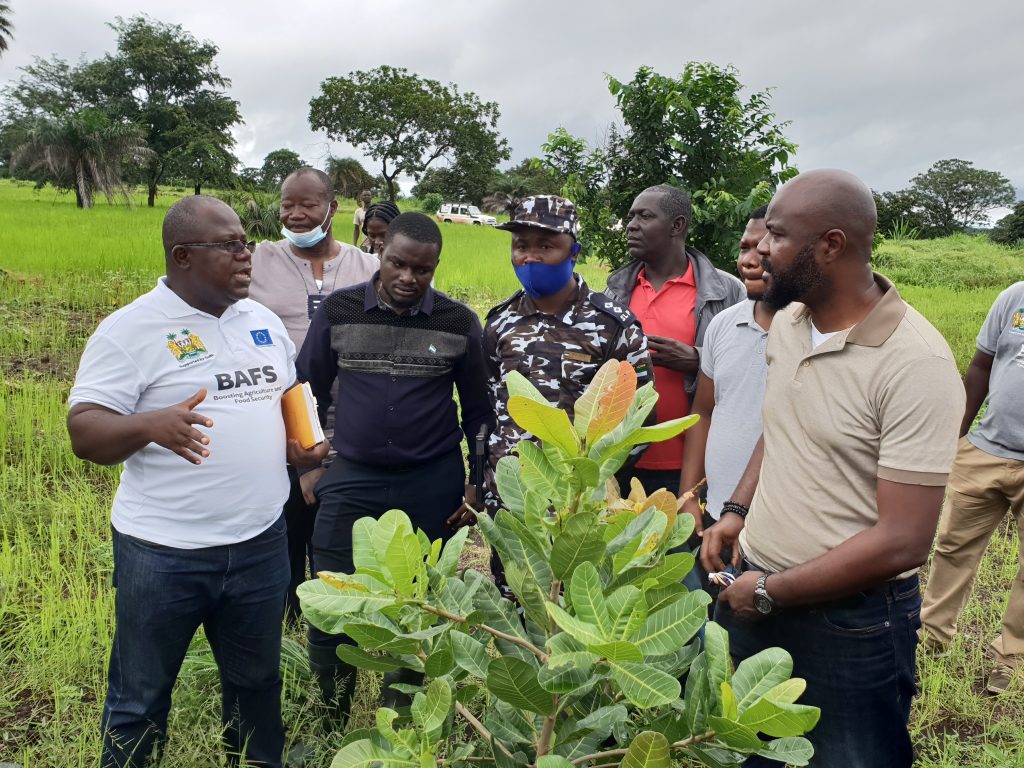
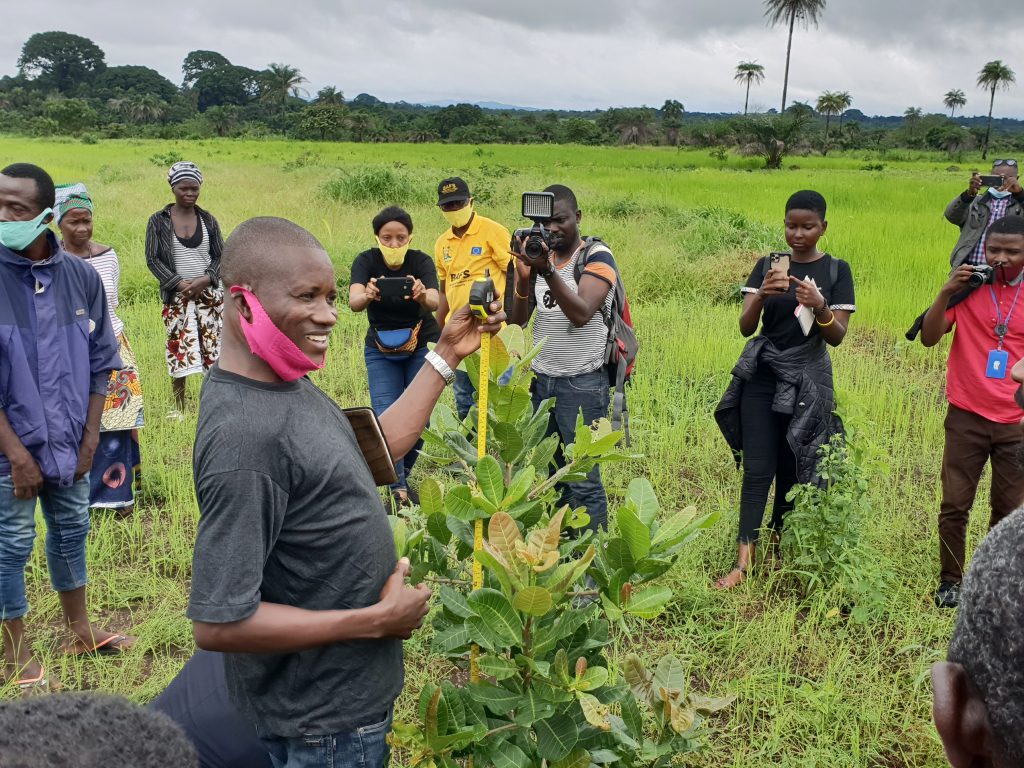
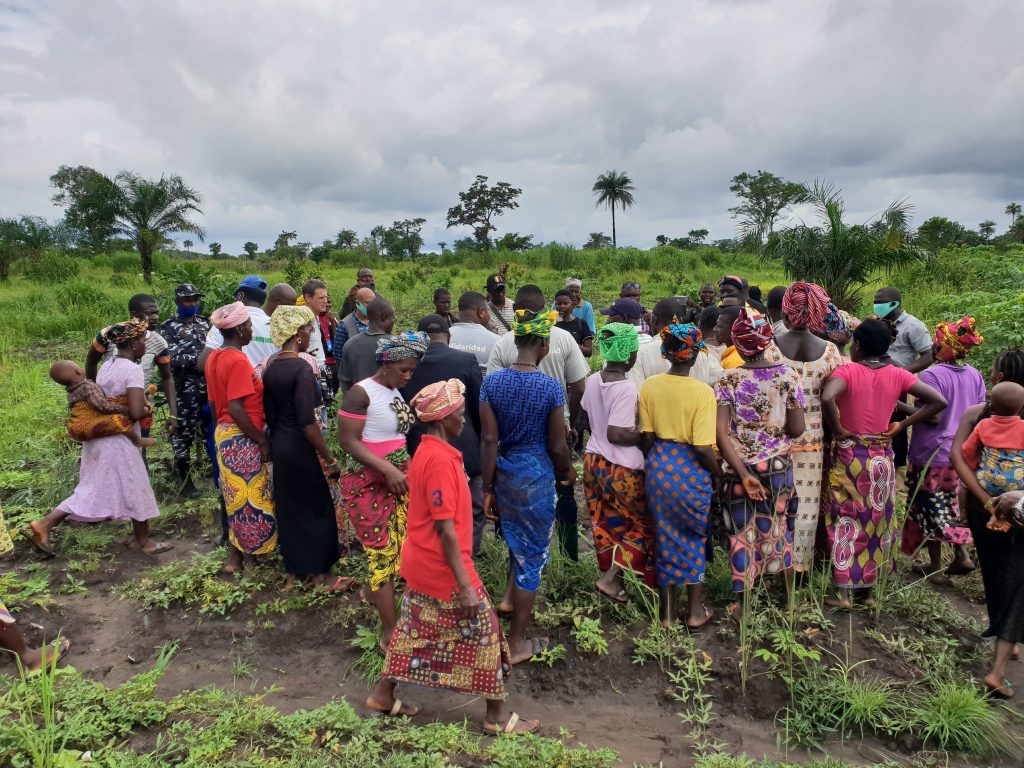
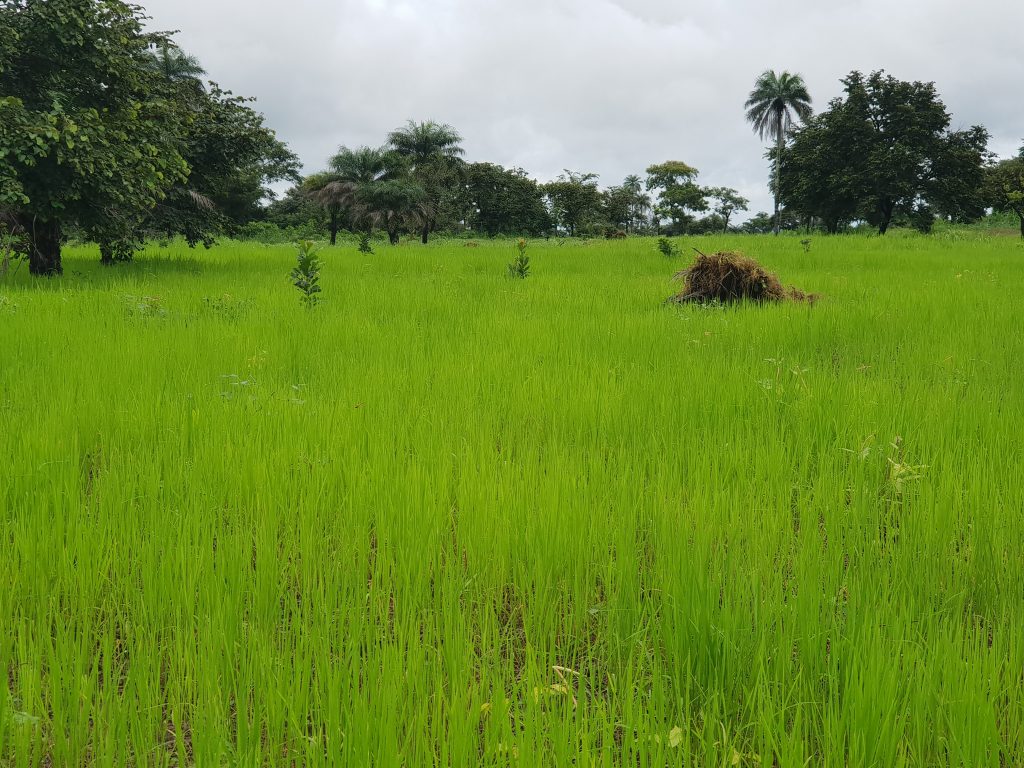
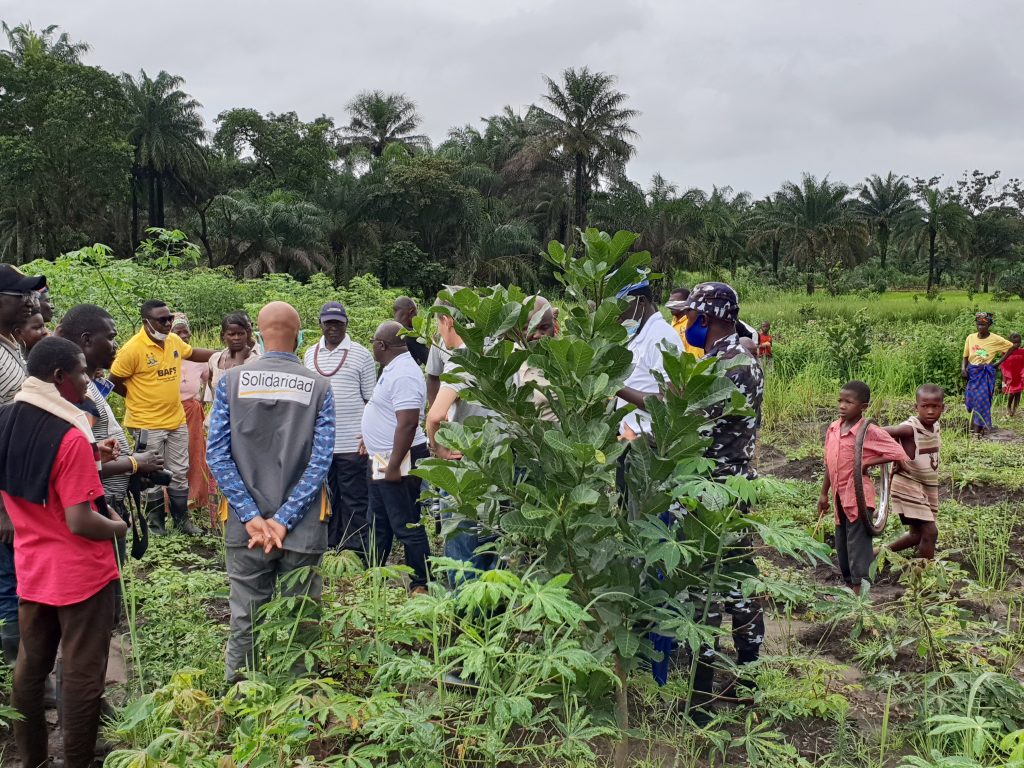

Leave a Reply